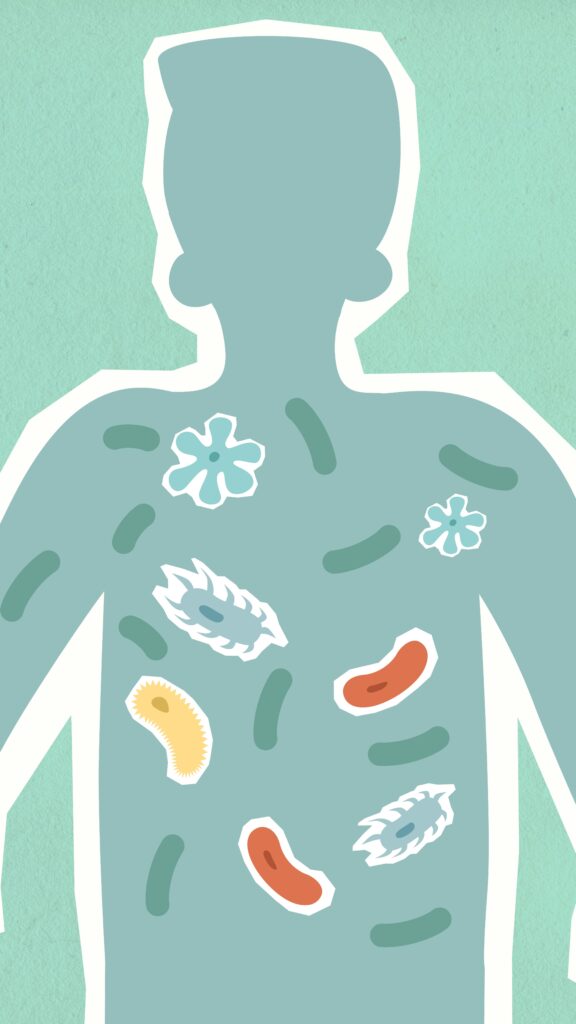
Its Overall Impact on Your Well-Being Gut health has become the talk of the town in wellness nowadays because research increasingly reveals it has a deep impact on both physical and mental well-being. The gut has been called the “second brain” because it holds trillions of microorganisms. They are important for both digestion and immunity, besides playing a role in maintaining your mood. A healthy gut has a well-balanced microbiome that is simply the broad community of bacteria, fungi, and other microorganisms that can support many different essential functions in the body. On this topic, let us discuss why gut health matters and how it impacts almost every part of our lives.
Gut Health and Digestion
The gut microbiome directly impacts the breaking down and absorption of food. Beneficial bacteria in the intestines help digest complex carbohydrates, break down fiber, and produce essential vitamins like B and K. An imbalanced gut with too much bad bacteria and not enough good bacteria can lead to digestive problems. Bloating, constipation, and IBS have been connected to an imbalanced microbiome. The American Gastroenterological Association reports that a high-fiber diet supporting a diverse microbiome reduces symptoms of IBS by up to 70 percent and improves digestion.
2. Gut-Brain Connection
The gut communicates with the brain through a complex network of nerves, the immune system, and gut microbiota. For this reason, gut health is closely linked to mental health. It has been established that the gut is responsible for the production of up to 90% of serotonin in the body, which is a neurotransmitter that plays a key role in the regulation of mood. Gut bacteria imbalance has been linked to a host of conditions such as anxiety and depression.
UCLA research discovered that subjects consuming probiotics showed less activity in the brain regions related to emotional responses. Further research has shown that an imbalanced microbiome decreases stress through the production of short-chain fatty acids and anti-inflammatory compounds, which are important for a healthy nervous system. Poor gut health increases stress responses and mental health issues, making a balanced diet and probiotics essential for emotional wellness.
3. Gut Health and Immunity
The gut is an essential component of the immune system because, as much as 70% of the immune cells reside in the gastrointestinal tract. The microbiome trains and regulates the immune response by identifying harmful pathogens while leaving the beneficial bacteria untouched. A compromised gut microbiome leads to dysregulation of the immune system, increasing susceptibility to infections and autoimmune diseases. A healthy gut microbiome produces anti-inflammatory compounds and encourages a balanced immune response, protecting the body from illnesses.
For example, research in Nature revealed that low inflammatory levels and high immune function were linked to diverse gut bacteria. However, those with fewer bacterial diversity experienced higher risks for inflammatory conditions such as Crohn’s disease and rheumatoid arthritis.
4. Weight Management and Metabolism
Gut health also plays a role in weight. Some gut bacteria influence how the body stores fat, how it responds to insulin, and how it processes hunger signals. Studies have shown that the more diverse the gut microbiome, the healthier the metabolism is and the less likely the individual is to be obese. 
According to Cell, dysbiosis, or an imbalance of the microbiome, may lead to weight gain through disrupted fat and sugar metabolism. Foods that are rich in probiotics, such as yogurt, high fiber diet are thought to enhance the metabolism since they bring about beneficial bacteria that aid in digestion and nutrient absorption. Fiber-rich foods, including whole grains, fruits, and vegetables, feed the beneficial bacteria in the gut.
5. How to Support Gut Health
A healthy gut does not need drastic measures. Here are some effective steps:
A diversified diet: Fiber-rich fruits, vegetables, and whole grains help create a diverse microbiome. Processed food intake should be limited. Processed foods contain many additives that are not good for gut bacteria. Thus, natural, whole foods are the best option.
Hydration: Adequate water helps digest food and keeps the mucosal lining of the intestines healthy.
Take Probiotics and Prebiotics: probiotics introduce us to healthy bacteria, but prebiotics, food components present in garlic, onions, and other related products feed the good bacteria we have.

Conclusion:
Gut health is involved with issues beyond digestion. Rather, mental health, proper functioning of the immune system, and metabolism are tied together and influenced by what goes in our gut, as paying attention to diet and nursing our gut microbiome is critical for overall wellness, thereby keeping away many unhealthy diseases from our body. As science discovers what the gut is, or rather what the gut actually does, maintaining healthy guts becomes ever more important. Helping the gut may indeed be one of the strongest tools to enhance physical as well as mental health.



